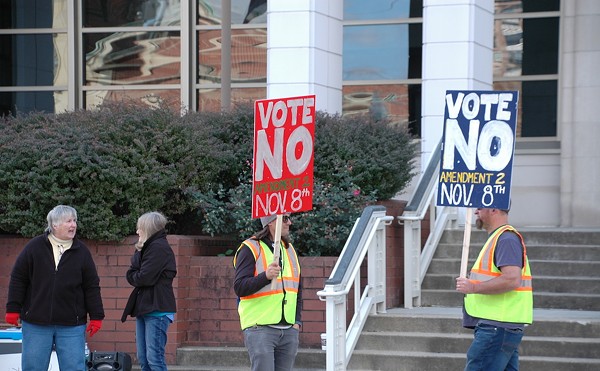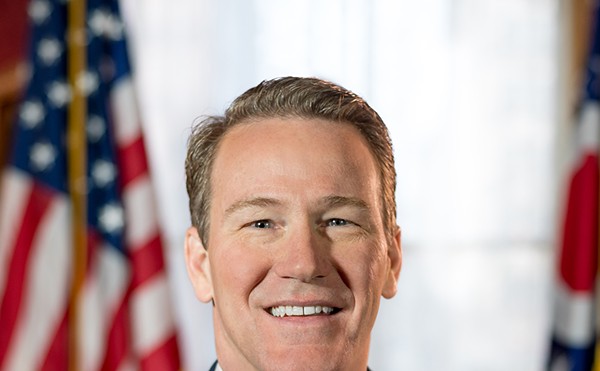City of Cincinnati and Hamilton County officials late last month announced they had reached an agreement that would restructure a 50-year-old operating agreement for the region’s Metropolitan Sewer District just months before it expires. But plans for MSD’s new operating structure aren’t out of the woods yet, even as Council is poised to vote to approve the deal as soon as Aug. 9.
Mayor John Cranley, facing re-election this year, has touted the agreement that would create a five-member MSD oversight board appointed by city and county officials as a historic win for the city.
“The average ratepayer just wants their rates to go up slower and their sewers to get fixed and running properly,” Cranley said at a news conference announcing the plan July 26.
But the deal has gotten significant criticism from Democrats on Cincinnati City Council — including Cranley’s mayoral opponent Yvette Simpson — and Republican Hamilton County Commissioner Chris Monzel.
Critics on Council say the deal cedes too many city assets to the county and that the proposed unelected board, of which the city appoints two members, isn’t democratic.
“Our sewer system impacts the daily lives of every resident in the city,” said Councilmember Chris Seelbach in a statement following the announcement of the deal. “Installing an unaccountable board to decide rate increases, environmental cleanup and construction contracts won’t improve the lives of Cincinnati residents. We’re giving away billions of dollars in assets for nothing in return and without any kind of meaningful feedback from the people we represent.”
While some on Council decried the level of county control in the arrangement, Monzel said the city should give up more say in how MSD is run.
“I was hopeful that the county would finally have full control of the sewer district and protect ratepayers from overspending and mismanagement,” Monzel wrote in an editorial in The Cincinnati Enquirer. “On the contrary, this is a bad deal for the ratepayers for the following reasons.”
The complexly structured 45-year deal comes after protracted bickering between the county and city over control of the utility, as MSD works on a $3 billion court-ordered repair effort and not long after a contracting scandal in which investigations revealed the sewer district had awarded no-bid contracts totaling millions of dollars. Ohio Auditor David Yost continues to audit the sewer district after those revelations.
Sewer rates have climbed drastically for MSD ratepayers — more than 125 percent in the last decade.
Hamilton County Commissioners Todd Portune and Denise Driehaus, both Democrats, worked on the arrangement and are ready to give the county’s commitment to the restructuring.
The board that would oversee MSD would have the power to hire and fire the district’s director and assistant director, but would need a four-member super-majority to do so. That arrangement guarantees that the county can’t have unilateral control over those decisions, but Monzel has warned that it could cause gridlock.
A key detail of the agreement deals with pensions for MSD workers. Under the deal before Council, employees with the sewer district would become county employees, but would continue to pay into the city’s pension fund. That’s a critical detail — the pension faced an eventual $800 million gap before it was restructured during Cranley’s tenure, and payments from sewer employees are key to the fund’s continued solvency.
The agreement would also make the county responsible for odor problems at MSD’s processing plant in Lower Price Hill, a situation that has generated a good deal of protest from residents and business owners in the area.
Council members opposing the deal are holding fast — something county commissioners say could be costly. If the city and county don’t strike a deal soon, they say, it could affect the county’s financial health. Commissioners must turn in a report on the county’s finances by Aug. 15, Driehaus says. That will be the final report before the current agreement between the city and county, written up in 1968, expires. Without a new agreement in place, the county risks a credit downgrade, county officials say.
“This agreement becomes very important to that document,” Driehaus told WCPO. “The instability is a real problem. And I do think there will be an impact to our ability to borrow money. In the end, somebody pays for that.”
Despite exhortations by commissioners, critics on City Council have called for more time to vet the proposal and make adjustments. So far, three council members — Simpson, Seelbach and Wendell Young — oppose the deal. Another three are undecided. At least two of them would need to vote yes to move the agreement forward. One, P.G. Sittenfeld, says he won’t make a decision until Aug. 14.
Even if Council approves the restructuring, the MSD deal faces other hurdles. State legislators must approve the deal, since county employees contribute to Ohio’s retirement fund, OPERS. It’s unclear whether lawmakers in the State House will go for the deal. ©






